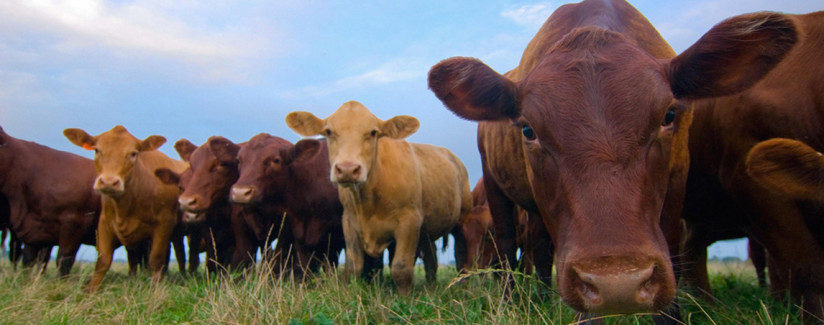
Antibiotics For Animals: Dangerous for Humans?
With all the buzz over questions about whether antibiotics fed to animals raised for food cause human antibiotic resistance, it seems apparent that this issue is at the forefront of consumer concerns. As well, we received the questions, “Why are antibiotics fed to livestock inside CAFOs or feedlots? Is this dangerous to humans?” from Food Dialogues. To address the topic, and as a follow up to our previous posts on the subject, we asked Peter Davies, BVSC, PhD, Professor of Animal Science from the University of Minnesota and H. Scott Hurd, PhD, Associate Professor of Veterinary Diagnostic and Production Animal Medicine from Iowa State University to respond.
Why are antibiotics fed to livestock inside CAFOs or feedlots?
Dr. Davies:
Several purposes – mostly related to maintaining animal health. The most obvious use is for therapeutic reasons – to treat animals with disease; they may also be used for metaphylaxis – meaning if there is an outbreak of disease in a group of animals – which treats all animals because of their exposure to the affected animals. In some instances, antimicrobials are used following the approved label to improve feed efficiency.
Dr. Hurd:
As they say, an ounce of prevention is better than a pound of cure. Exclusively talking about feeding (antibiotics can also be administered via injection or water), antibiotics are fed to animals mainly for two purposes: to prevent illness outbreak or for growth promotion (the FDA calls this “production purposes”) – both of which allow the animals do better. This could be because in feed, antibiotics are preventing the animal from getting sick in the first place.
Note, however, that overall, 88% of all antibiotics in livestock are used for illness prevention or illness treatment, according to the companies who sell these antibiotics. The balance is to keep animals from getting sick. If we can prevent a barn of 1,000 animals from getting sick in the first place, then we won’t need to inject animals later – which is a riskier practice than prevention techniques.
Is there a risk to human health?
Dr. Davies:
There’s no such thing as zero risk. This has been analyzed for over 50 years; products have been approved for various uses since the mid-1950s. Most people accept the fact that when using antibiotics – in animals or humans, there is potential for resistance. The part that has been disputed is to what extent the use of antibiotics in animals could contribute to human health concerns. There are a lot of opinions, and some shortage of data. There have been some risk assessment studies done looking at antimicrobial uses and the probability of human disease and these have universally concluded that the human health risks are extremely low. There are almost no documented clinical cases where antibiotic resistance was unequivocally tied to animal antibiotic use. So while the risk is not zero, in my opinion, it is extremely low.
Dr. Hurd:
Regarding whether this presents public health concerns, the risk assessments that have been published in peer reviewed scientific journals (half a dozen or so) show that the chance of danger is extremely low. For it to be a concern, the resistant bacteria would have to be on the farm, then get to the consumer, then that consumer would have to fail to get better because of their resistance to antibiotics because of the antibiotic given to the animal. If you actually do the calculation, you’re statistically more likely to die of a bee sting than you are to end up enduring a couple days with diarrhea because of the above scenario. That’s not to say that we don’t see resistance in the population, but if you calculate the possibility that, for example, the resistant bacteria is going to make it from a farm in Nebraska to a dinner plate of a person in New Jersey who doesn’t respond to antibiotics, the risk is exceedingly small. This is because there are a lot of interventions in between. We make sure there are no livestock antibiotics on the meat before it leaves the packing plant. And most importantly, anyone handling meat should understand how to prepare it in a way that ensures all bacteria on the meat are killed during the cooking process.
We would like to extend our sincere condolences to the family and friends of Dr. Scott Hurd, who passed away on Thursday, March 27, 2014.



























